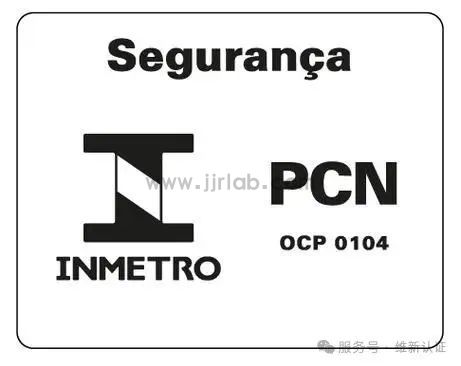
Brazil INMETRO Certificate Consultation
INMETROis the abbreviation of Instituto Nacional de Metrologia, Qualidade e Tecnologiain Portuguese. It refers to the National Institute of Metrology, Quality and Technology of Brazil, which is the national accREDitation body. Its responsibilities include standard formULation, laboratory accreditation, certification body accreditation, inspection body accreditation, among others.
According to Article 1 of Law No. 9933 issued in 1999, goods that are used or sold in the Brazilian market must comply with the relevant technical regulations. INMETRO is designated as the authority responsible for executing, coordinating, and supervising conformity assessment activities.
Therefore, within the industry, this product compliance process is commonly referred to as INMETRO Certification.
In the latest Ordinance No. 2 of 2017, INMETRO designated Cgcreas the accreditation body for Product Certification Bodies (OCPs). Thus, certifications implemented by INMETRO should technically be referred to as Cgcre Certifications. However, since INMETRO is the more widely recognized official entity, the industry continues to refer to Brazil's safety complianCE certifications as INMETRO Certification.
Certifications are implemented based on regulations or ordinances issued by INMETRO. As of January 22, 2019, there are 156 categories of productslisted in the mandatory certification catalog.
Among them, electrical and electronic productsmainly include functional appliances, such as lighting, air conditioners, refrigerators, kitchen appliances, hair dryers, televisions, etc. There are also 40 categories in the voluntary certification catalog, with electronics mainly covering information technology equipment.
INMETRO Certification Model
The certification model includes:
Type Testing + Factory Audit + Post-Certification Surveillance.

Brand owners can confirm the product category with an OCP, then submit an application and send samples for testing. After the testing is completed and a test report is issued, the OCP will arrange a factory audit. Once the factory audit is successfully completed, the INMETRO Certificatecan be granted.
The validity period of an INMETRO certificate varies by product category, ranging from 2 months to 5 years.
After certification, semi-annual factory auditsare required.
The certificate holder must be a local company in Brazil.
Labeling Requirements
The standard NIE-CGCRE-009, issued by Cgcre, stipulates that the use of the INMETRO mark must comply with INMETRO's brand usage guidelines.
Once the product passes INMETRO certification, labels can be printed according to templates provided by the OCP.
As shown below, the label must display:
1. The INMETRO mark
2. The OCP logo and code
3. The registration code of the local company
Important Notes
Products listed in Brazil’s voluntary INMETRO catalogcan be legally sold in the Brazilian market without INMETRO certification. However, if these products include plugs, the plugs must comply with NBR14136standards.
Some products may apply for INMETRO certification through a cb report Transfer Process.
Chapter 7 of INMETRO Regulation No. 306requires OCPs to audit the authorized representative (local company).
After certification, manufacturers must display the contact information of the legal representative (local company)on the product and packaging to facilitate after-sales servicefor Brazilian consumers.
Brazilian PBE Energy Efficiency Labeling Program
Brazil has a voluntary energy efficiency labeling programcalled Programa Brasileiro de Etiquetagem (PBE), which ranks product energy efficiency from A (most efficient) to G (least efficient).
This program is voluntary, and performance indicators vary by product.
For example:
1. Hair dryersare evaluated based on noise level
2. Washing machinesare assessed based on water efficiency, etc.
Email:hello@jjrlab.com
Write your message here and send it to us
 How Do You Get a CE Mark
How Do You Get a CE Mark
 IEC 60529 IP Rating Ingress Protection Standard
IEC 60529 IP Rating Ingress Protection Standard
 IEC 60601-1 Medical Electrical Equipment Basic Saf
IEC 60601-1 Medical Electrical Equipment Basic Saf
 European Authorized Representative Medical Devices
European Authorized Representative Medical Devices
 EU Waste Electrical and Electronic Equipment Direc
EU Waste Electrical and Electronic Equipment Direc
 How to Get CE Approval
How to Get CE Approval
 Accelerated Ageing Test
Accelerated Ageing Test
 IP Ingress Protection Testing
IP Ingress Protection Testing
Leave us a message
24-hour online customer service at any time to respond, so that you worry!




